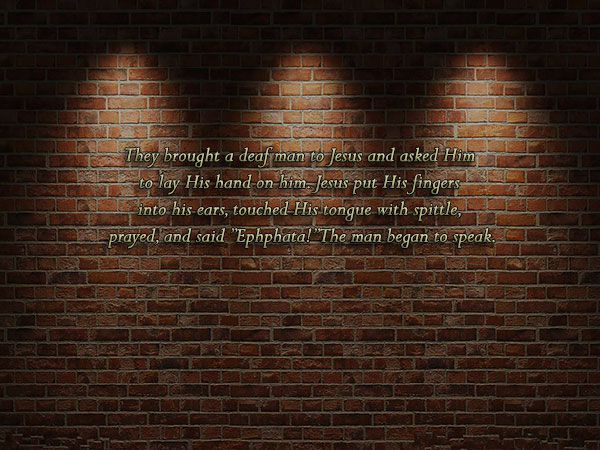Gospel: Mt 9:1-8
Jesus got back into the boat, crossed the lake again, and came to his hometown. Here, they brought to him a paralyzed man, lying on a bed. Jesus saw their faith and said to the paralytic, “Courage, my son! Your sins are forgiven.“
Some teachers of the law said within themselves, “This man insults God.“ Jesus was aware of what they were thinking; and said, “Why have you such evil thoughts? Which is easier to say: ‘Your sins are forgiven’ or ‘Stand up and walk’? But that you may know, that the Son of Man has power on earth to forgive sins,“ he said to the paralyzed man, “Stand up! Take your stretcher and go home!“ The man got up, and went home.
When the crowds saw this, they were filled with awe, and praised God for giving such power to human beings.REFLECTION:
The Jews believed that there is a direct correlation between sin and bodily illness. This was one of the reasons why in the Old Testament sacrifices were offered as peace offerings intended to heal broken relationships with God. By forgiving the sins of the paralyzed man, Jesus intended to restore him to good health physically and spiritually. As someone observed, for Jesus “forgiveness is the key to healing and faith is the key to forgiveness.“ While we cannot conclude that healthy people are necessarily more saintly, it cannot be denied that a sinful lifestyle affects a person’s general well-being. Sinfulness inevitably disturbs our relationships–with ourselves, with other people, with the world and with God. Sin has a tremendous impact on our self-esteem and self-confidence. When we are in sin a sense of shame and guilt affects our relationship with others and with God.
Our personal experiences tell us that some of the blessings of the Sacrament of Penance include serenity, peace of mind and a more positive disposition in our relationship with others. It is in this sacrament that we experience concretely and deeply the mercy and compassion of God.
2014 Copyright. Claretian Communications Foundation Inc







